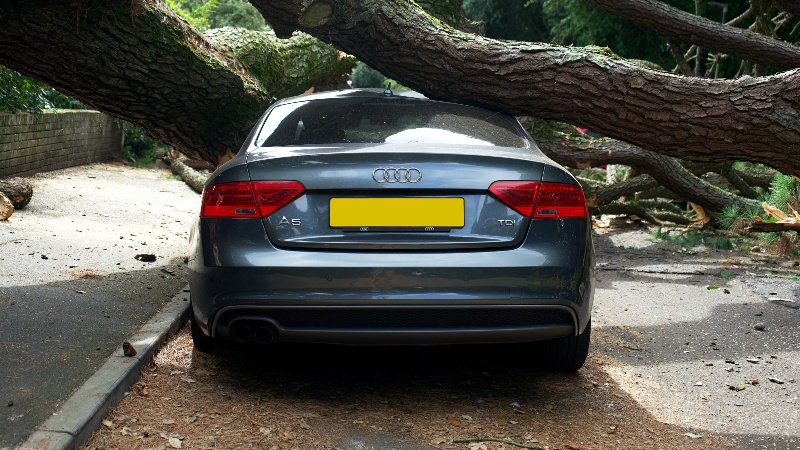Cars
Dealing with the Consequences of a Car Crash: 8 Practical Tips
What is the best thing to do after a car accident?

If you or someone you know has been involved in a car crash, the aftermath can be overwhelming, to say the least. From sorting out insurance claims to dealing with physical injuries and psychological trauma, there are many factors at play that need attention. While no single blog post could ever replace professional medical advice from a qualified doctor, this article will provide 8 practical tips for getting through the trying time of recovering from a car crash.
With guidance on everything from navigating your health plan to replacing lost earnings and possessions, we hope it serves as one way to lighten your load when faced with such adversity.
Understand your insurance policy and what it covers
As a responsible driver, it’s important to spend time learning and understanding your insurance policy. If you’re in an accident, knowing what your policy covers can make all the difference in how much responsibility and financial burden you will be taking on. Your insurance provider should provide detailed information about the coverages that are provided in their policies, so take the time to look over coverage options and decide which ones you need to have as part of your plan.
In addition, speak with an agent if you have any questions or uncertainties. Knowing your policy is essential for protecting yourself and managing your risk when behind the wheel.
Gather evidence at the scene
Gathering evidence at the scene of a crime is an essential step in building a successful case. Photos of the area, recordings, and witness statements can be important pieces of information that can provide a clearer picture of what happened. While photos are useful for demonstrating visual details, witness statements allow investigators to get first-hand accounts from people who were present when the crime occurred. Collecting as much evidence as possible at the scene allows investigators to piece together the bigger picture and build a stronger body of evidence.
Contact a lawyer to help you understand your rights and options
If you’ve recently been involved in a car accident, it’s important to know your legal rights. Consulting a lawyer can help provide clarity and assurance that you are protected. Working with an experienced car accident lawyer will ensure not only that your rights are adequately represented, but they can also advise on the best steps forward to achieve a satisfactory outcome. Don’t leave it too late – contact a lawyer today to understand your full range of options.
Follow up with doctors after the accident
If you have been involved in an accident, following up with a medical doctor is a crucial step to take. Doing so ensures that any injuries you may have sustained can be examined as soon as possible and treated in the most effective manner. Seeing your health care provider allows them to properly diagnose any injuries and to begin early intervention or treatment so that you can make a full recovery.
Scheduling regular check-ups with your healthcare provider will also help monitor any changes or developments in your condition and they will be able to keep track of your overall progress. By staying on top of your follow-up visits, you can ensure that the best course of treatment is being taken for yourself after an accident.
Familiarise yourself with local laws related to car accidents
Car accidents can be scary and overwhelming experiences. That’s why it’s important to understand the local laws surrounding them so you know what to expect from the legal process. Knowing information such as when to contact the police, how insurance companies should interact, and what the fines are for breaking certain regulations can help make a difficult situation much more manageable.
Different regions have different rules in regard to car accidents, so familiarising yourself with your specific location is vital if you ever find yourself in an accident. Taking care of this essential knowledge beforehand will be beneficial in handling any potential repercussions that might arise down the road.
File a police report in the event of a crash
If you have been involved in a car crash, it is important to file a police report. A police report is an official document that can help defend both drivers and their insurance companies, ensuring everyone gets the appropriate compensation for any injury or damage. It also serves as a reliable record of the details of the crash and serves as evidence if further action needs to be taken. To begin filing a police report, contact your local law enforcement agency who will either respond to the scene of the accident or direct you to a nearby precinct or station.
Make sure to provide all of the necessary information on you and all other drivers involved in the crash, including contact information and vehicle information. Filing a police report following a car crash is an important step for preserving justice for everyone involved.
Keep all records related to the accident, including medical bills, repair bills, and other expenses
After a car crash, there can be a lot of expenses to deal with. From medical bills to vehicle repairs, it can be difficult to keep track of everything. That’s why it’s important to keep detailed records of all expenses related to the accident. This includes receipts, bills, and any other documentation you have. Not only will this help you file your insurance claim more accurately, but it will also be useful if you need to take legal action.
Consider seeking emotional support or counselling
It’s common to experience a range of emotions after a car crash, including fear, anxiety, and depression. If you find yourself struggling to cope, it’s important to seek emotional support or counselling. Talking to a mental health professional can help you process your emotions and develop coping strategies. This can be especially important if you are experiencing symptoms of post-traumatic stress disorder (PTSD), which can include flashbacks, nightmares, and avoidance behaviours. Remember, taking care of your mental health is just as important as taking care of your physical health after a car crash.
Most car accidents are unplanned and rarely expected. However, if you’re ever in the unfortunate circumstance of being involved in a crash, it is important to be prepared. Understand your insurance coverage and what would be covered in such an event. Evidence is also vital as it can provide potentially useful information that can later be used should the situation become more serious. Consult with a lawyer to learn more about your rights, and don’t forget to follow up with doctors even after you have been medically cleared after the accident – prevention is always better than cure!
Familiarise yourself with local laws related to car accidents to make sure you can adequately protect yourself should an issue arise. Last but not least, file a police report right away so that proper record keeping of the accident can take place. By preparing ourselves beforehand, we hope each one of us will stay safe on the roads every day.















